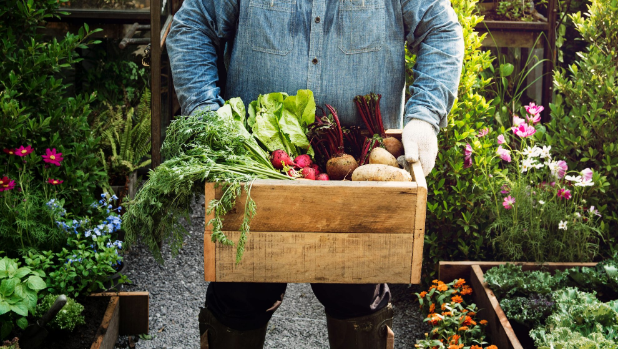
Way before it was considered cool, our front and back yards were planted out with vegetables and fruit trees.
Last year, I watched in horror as my elderly father crawled crab-like along the edge of the roof to secure bird netting over the vigorous grapevine he planted more than 50 years ago.
He’s since delegated this particular responsibility to his children, but only after a spirited, drawn-out struggle.
My father is a wily, wiry 95-year old who drives everywhere, uses the internet regularly, cooks using whatever is in season in his garden, follows current affairs, socialises weekly and still grows the plumpest, sweetest tomatoes I’ve ever tasted.
He comes from a remote southern Italian village, Rofrano, which is culturally similar to Nuoro province in Sardinia, a place identified a dozen years ago as having the world’s highest per capita ratio of male centenarians.
Since then, demographers have identified four other places in the world that have similarly long-lived residents: Okinawa, Japan; Nicoya, Costa Rica; Icaria, Greece; and Loma Linda, California (a Seventh-day Adventist enclave).
Each of these places has been found to share strikingly similar lifestyles that Dan Buettner, an adventurer and author with a keen interest in anti-ageing practices, has identified as contributing to a longer, healthier, happier life.
They are: regular incidental exercise through physical work (such as gardening); a daily sense of purpose; actively de-stressing (such as taking siestas or doing meditation); moderate food consumption that includes little, if any, meat; small amounts of alcohol daily (except the Seventh-day Adventists); a spiritual faith; and strong family and social connections. Buettner named these Blue Zone practices and subsequently wrote three books on the subject that have spawned a cult-like following.
After migrating to Australia in the 1950s, my parents held on to their traditional ways. These were a constant source of embarrassment to me, an insecure teenager who wanted to be exactly like her Aussie mates. Way before it was considered cool, our front and back yards were planted out with vegetables and fruit trees. We went foraging for blackberries, prickly pears or mushrooms on “outings” in the Dandenongs. Most mortifying of all, we harvested mussels off Albert Park pier while everyone else on the beach (including my friends) was having fun.
Sure, it may sound romantic – quaint even – but there was nothing appealing about spending three hours making ravioli by hand every Sunday after Mass. Or weekends squeezing pallet-loads of tomatoes by hand into passata and bottling it. On Monday mornings, while my Australian friends chatted about their weekends, I smiled pleasantly, feverishly conjuring up plausible lies in the event I had to give an account of mine.
Okay, it wasn’t all bad. We’d regularly gather with our uncles and aunties for mini-fiestas, spending most of the day mucking around with our cousins while the women cooked and served up and washed dishes and flirted with the men, who would sit nearby talking, laughing and flirting back. (I know this from the miles of home-movie footage my father took.)
However, being a self-respecting adolescent struggling to find her identity while straddling two cultures, I rejected every value my parents attempted to instil in me. Much to their disappointment, I fled the coop in early adulthood and did things my way. Well, the way my Aussie mates did, actually.
Now, as I head towards my twilight years, I find myself seeking out the secrets to happy, healthy and dementia-free longevity. Much as it pains me to say it, the lifestyle practices I’ve adopted these past 10 years bear a remarkable resemblance to those of my parents – and the Blue Zones.
Yes, I’m a suburban fruit- and vegie-grower who eats little red meat, pickles olives, makes pasta from scratch and drinks moderately (kind of). I meditate every day, cycle instead of drive, and do my best to stay connected with friends and family.
So, begrudgingly, I admit that my father may have been right about a thing or two. But modesty was never one of his virtues. So I’ll be damned if I’ll ever admit it.
[“Source-stuff”]
